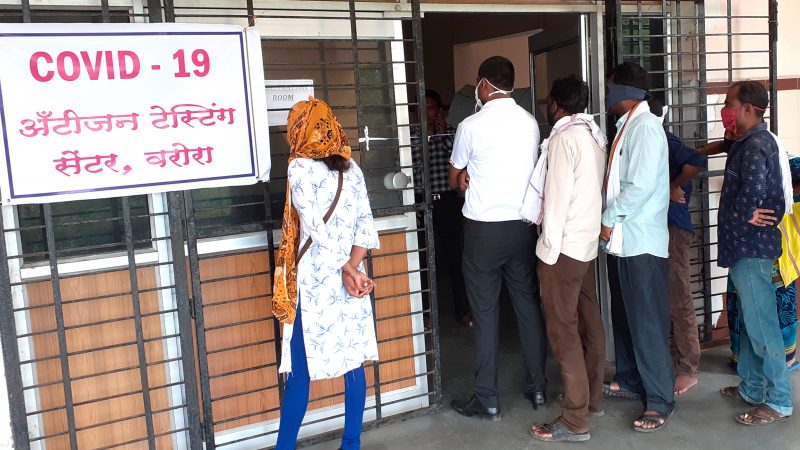Thanks to Social media Indians Realized Its Power to Help Them with COVID

As nearly every state in India reels under a vicious second wave of the COVID-19 pandemic, citizens have become a source of support for one another. On April 23, the number of new COVID-19 cases reached more than 332,000 in just 24 hours, the highest-ever recorded in the world in a single day; the death toll for the day stood at 2,263.
The states of Maharashtra, Kerala, Karnataka, Tamil Nadu, Andhra Pradesh, Uttar Pradesh, Delhi and West Bengal are some of the worst hit, but as the healthcare system baulks under the rising caseload, ordinary citizens are coming forward to help alleviate some of the sufferings. From random acts of kindness to well-coordinated responses, Indians are standing in solidarity with one another, even as they grieve.
When the hospitals were forced to keep COVID-19 patients waiting for admission due to lack of beds and medical-grade oxygen cylinders, a Gurdwara (a place of worship for Sikhs) in Ghaziabad near Delhi, opened its doors. The Gurdwara joined hands with an NGO and organized an ‘Oxygen Langar’ (a langar is the community kitchen of a Sikh temple, which serves meals free of charge), for anyone with respiratory issues. Patients experiencing breathing problems were given oxygen until they could be admitted to the hospital.
At a time when the country's health infrastructure is overburdened and inaccessibility to medical care is causing fear and panic, there have been many such instances of people rallying together to provide critical services. In the throes of a crisis, this type of support offers a ray of hope — and social media platforms like Twitter, Facebook and WhatsApp, are emerging as some of the channels through which people are both seeking and offering assistance.
Moubani Sengupta, a student of Microbiology from Kolkata, contracted COVID-19 in August 2020. Witnessing the havoc wreaked by the second wave, she took it upon herself to record and post a video on Facebook, in which she outlined steps people can take to give themselves the best chance should they get infected.
Moubani is not alone. Several Facebook groups — such as the COVID-19 Plasma Donor-Recipient Help India Group, where people post their plasma requirements — are acting as COVID-19 helplines and information centres. Plasma therapy is one of the methods currently being used for treating patients infected with the coronavirus. Corona Recovered Warriors offers similar services, providing information and other types of support that COVID-19 patients need.
Twitter has also turned into a 24/7 helpline on medical care access, as netizens from all over India share information on nursing homes, doctors, hospitals, and the availability of medicine and oxygen cylinders. Internationally acclaimed journalist Rana Ayyub noted:
One Twitter user, who benefitted from the information, expressed her gratitude:
Apart from the patients requiring hospitalization, there are many who have been advised to self-isolate in home-quarantine. In several such cases, entire families have been infected, but their communities have assisted by delivering home-cooked meals and doing runs for essential commodities.
By April 23, however, the Indian government — citing the Information Technology Act, 2000 — requested that Twitter take down dozens of tweets it seemed were critical of its response to the current COVID-19 outbreak.
Journalist and digital rights activist Nikhil Pahwa reported that Twitter has agreed, and that as many as 52 such tweets are now inaccessible to Indian users of the microblogging platform:
Kenneth Roth, executive director of Human Rights Watch, commented:
Meanwhile, WhatsApp groups continue to share information on essential COVID-19 treatments and offer round-the-clock, volunteer-based food services in various localities.
Amidst the chaos of wailing ambulance sirens and dwindling hope, Indian netizens’ response to this latest wave of the ongoing COVID-19 crisis tells a story of human resilience and compassion, suggesting that all is not lost.
Comments